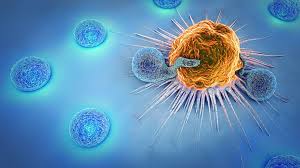New research suggests individuals with alcohol use disorder (AUD) and depression experience similar positive effects from drinking alcohol as non-depressed drinkers.
A groundbreaking study from the University of Chicago Medicine has shed new light on the relationship between alcohol, depression, and alcohol use disorder (AUD). Contrary to long-standing beliefs, the study found that people with both AUD and depression report experiencing high levels of stimulation and pleasure when intoxicated—similar to individuals without depression.
The study, led by Andrea King, Ph.D., a Professor of Psychiatry and Behavioral Neuroscience at UChicago, challenges the widespread notion that excessive drinking is a form of self-medication for depression. King explained, “We have this folklore that people drink excessively when they’re feeling depressed, and that it’s really about self-medicating. In this study of natural environment drinking and real-time smartphone-based reports, participants with AUD and depression experienced acute, sustained positive effects from alcohol—just like those without depression.”
Published in the American Journal of Psychiatry, this research opens up new avenues for treatment strategies, suggesting that more attention should be paid to the pleasurable aspects of alcohol consumption in both AUD and depressed individuals. Current treatments often focus on alleviating stress and depression, but King advocates for a broader approach that considers both the rewarding and stress-responsive systems of the brain in alcohol addiction.
The study followed 232 individuals between the ages of 21 and 35, a group that is particularly vulnerable to heavy drinking. Half of the participants met the criteria for AUD, with half of that group having also experienced major depressive disorder in the past year. The participants provided real-time data on their alcohol use via smartphones, answering questions every half hour for three hours during one typical drinking episode and one non-alcohol episode.
The results revealed that while alcohol consumption did reduce negative feelings, the reduction was not specific to depression or AUD. The positive effects of alcohol were notably higher in participants with AUD, regardless of whether they had depression, contradicting the idea that alcohol’s pleasurable effects diminish with addiction.
“This study shows that for individuals with AUD, alcohol consumption can lead to significant positive feelings, much like in individuals without depression,” said Daniel Fridberg, Ph.D., co-author of the study. “By leveraging mobile technologies, we can bridge the gap between controlled laboratory environments and real-life experiences, offering fresh insights into alcohol use and its effects.”
The findings also challenge the prevailing theory that alcohol addiction arises from a brain trying to maintain stability despite repeated heavy drinking. This theory suggests that individuals drink to avoid withdrawal and stress, with pleasure diminishing over time. However, King argues that her findings point to heightened stimulation and pleasurable effects as an accelerant to alcohol dependency.
Looking ahead, King’s team is planning further research to investigate how older adults (ages 40-65) with long-term AUD respond to alcohol. The new study will explore whether these individuals, contrary to current expectations, still experience heightened pleasure from alcohol, despite years of heavy drinking.
Disclaimer: The information in this article is based on a recent study and should not be taken as medical advice. If you or someone you know is struggling with alcohol use or mental health issues, it is important to seek professional help.












